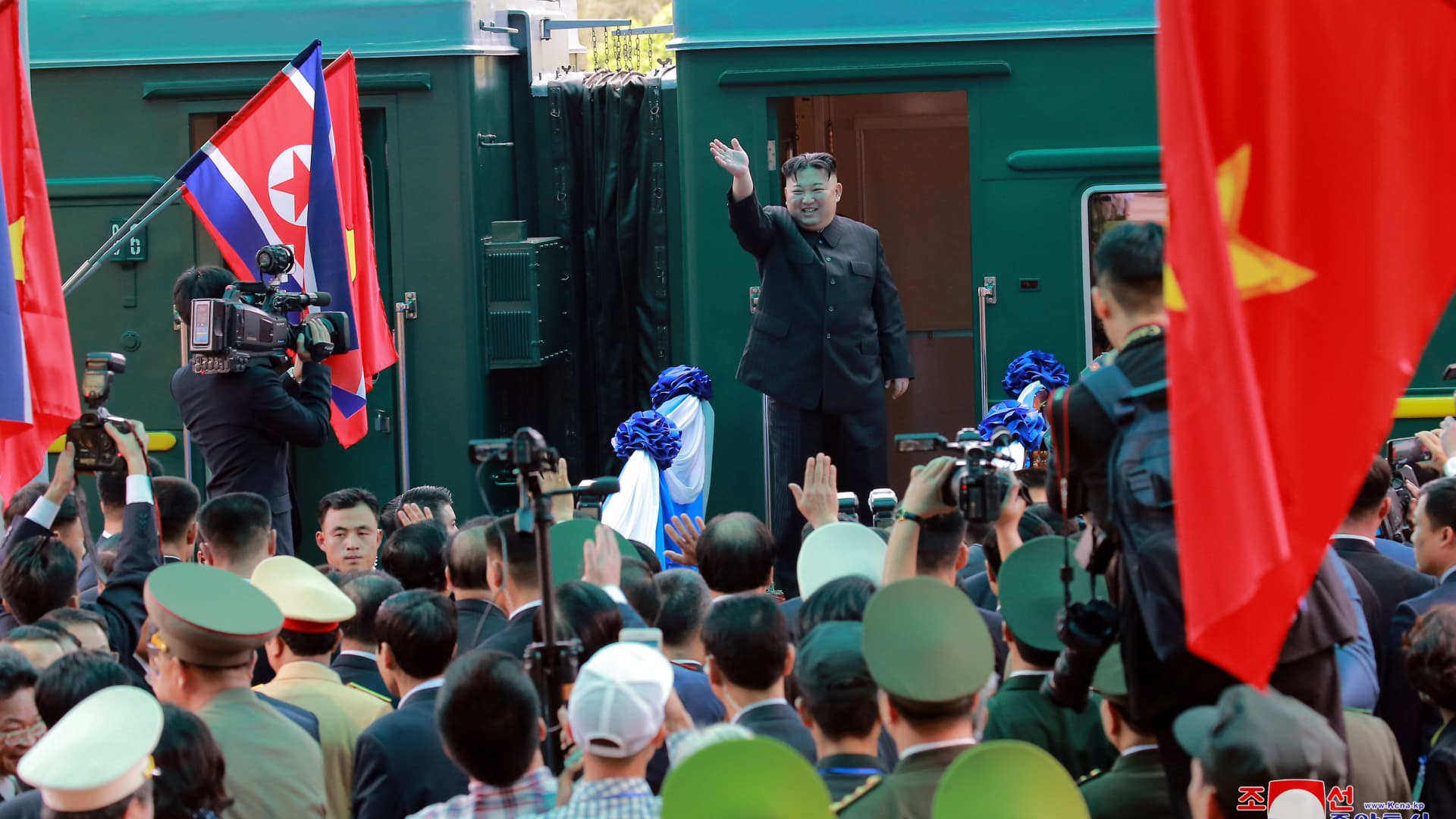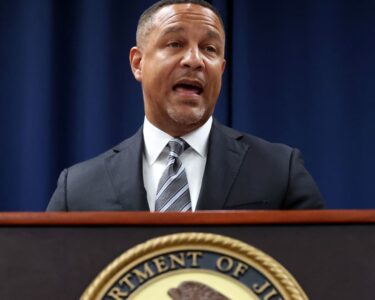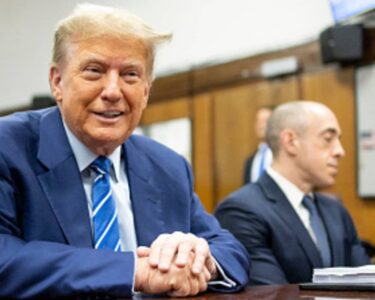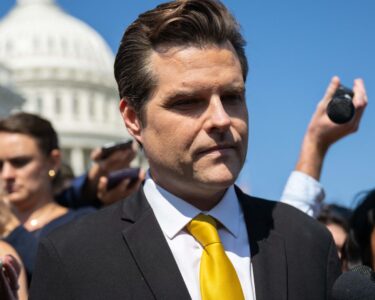This was CNBC’s live blog tracking developments on the war in Ukraine on Sept. 11, 2023. See here for the latest updates.
Russian President Vladimir Putin will meet his North Korean counterpart Kim Jong Un this week, the Kremlin confirmed Monday.
South Korean media reported Monday that a North Korean train, presumably carrying North Korean leader Kim Jong Un, had departed for Russia. The Kremlin had earlier denied a meeting would take place but then acknowledged it would do “in the coming days,” without giving further details.
It’s likely any meeting will take place on the sidelines of this week’s Eastern Economic Forum in Vladivostok, which is 80 miles from Russia’s border with North Korea.
In other news, Ukraine was left fuming at the weekend after the Group of 20 nations, which were gathered in India for a summit, failed to explicitly condemn Russia’s invasion of Ukraine in their joint declaration.
Member states agreed to refrain from the use of force to acquire territories, and agreed that the use or the threat of nuclear weapons was “inadmissible” but referenced the war “in” rather than “against” Ukraine. References specifically to Russia’s aggression were omitted.
Indian Prime Minister Narendra Modi, who hosted G20 leaders at the summit in Delhi, hailed the meeting as “the most ambitious in the history of G20,” but Ukraine, which was not present at the summit, said the G20 had “nothing to be proud of.”
The U.S. is set to impose new sanctions against North Korea if the country ships arms to Russia, a State Department spokesperson said Monday.
Any shipment of weapons from North Korea to Russia would violate multiple U.N. Security Council resolutions, State Department spokesperson Matthew Miller said during a briefing.
“We of course have aggressively enforced our sanctions against entities that fund Russia’s war effort and we will continue to enforce those sanctions and will not hesitate to impose new sanctions, if appropriate,” Miller said.
“We have always looked to impose sanctions and hold accountable countries or entities that support Russia’s war effort,” he said.
The U.S. warning comes as North Korean dictator Kim Jong Un is set to visit Russia this week. North Korean state media said Kim will meet with Russian President Vladimir Putin during his visit.
U.S. officials say Pyongyang and Moscow have discussed a potential arms deal and those talks may continue when Kim visits Russia.
“We are going to monitor very closely the outcome of this meeting,” Miller said.
— Spencer Kimball
A spokesperson from the U.S. National Security Council urged North Korea to hold up its agreement to not sell or provide arms to Russia as North Korean leader Kim Jong Un reportedly travels to the country.
“As we have warned publicly, arms discussions between Russia and the DPRK are expected to continue during Kim Jong-Un’s trip to Russia. We urge the DPRK to abide by the public commitments that Pyongyang has made to not provide or sell arms to Russia,” NSC Spokesperson Adrienne Watson said in a statement, as reported by NBC News.
The Council has already said it is “concerned” about arms discussions between North Korea and Russia, with John Kirby, assistant to the Secretary of Defense for Public Affairs, having said on Aug. 30 that new information suggested arms negotiations between the two countries were “actively advancing.”
— Hannah Ward-Glenton
German Foreign Minister Annalena Baerbock said Ukraine’s place is in the European Union on a visit to Kyiv, but she added more needed to be done to fight corruption in the country.
“Just as Ukraine is standing up for us, it can also rely on us and on our understanding of EU enlargement as a necessary geopolitical consequence of Russia’s war. And on our firm support for Ukraine on its path towards the European Union,” Baerbock said on arrival, as reported by Reuters.
“Reform results in the areas of judicial reform and media legislation are already impressive. But there is still a long way to go in the implementation of the anti-oligarch law and the fight against corruption,” she added.
Baerbock also announced Germany would be providing an additional 20 million euros ($21.5 million) in humanitarian aid for Ukraine, bringing Germany’s total to 380 million euros this year, the minister said.
— Hannah Ward-Glenton
Russians who left the country when the war broke out in Ukraine will return to Russia as it becomes more attractive economically, Kremlin spokesperson Dmitry Peskov said in an interview with RBC, as reported and translated by state media outlet TASS.
“As our growing market becomes more attractive against the background of negative economic trends in many countries where these people preferred to go, these people will be coming home,” Peskov said, citing factors such as gross domestic product, inflation and unemployment as economic indicators that would entice citizens to return.
Russian Finance Minister Anton Siluanov was quoted in August as saying the country’s economy would grow by 2.5% or more this year, and that inflation would sit at around 6%, as reported by Reuters.
In June Russia’s unemployment rate dropped to 3.1%, highlighting an ongoing labor shortage in the country.
“We certainly have difficulties. We have problems. We can’t help but feel these problems on ourselves, given the unfriendly atmosphere around us. I mean what the countries of the collective West have been trying to do to us,” Peskov added.
— Hannah Ward-Glenton
The Kremlin said that North Korea’s leader Kim Jong Un will visit Russia this week, having previously denied any meeting would take place.
Speculation had been mounting that a meeting between Kim and Putin would take place on the sidelines of the Eastern Economic Forum in Vladivostok.
Pyongyang and the Kremlin had denied this, with Kremlin spokesman Dmitry Peskov saying earlier this morning that there were no plans for a meeting.
A few hours later, however, the Kremlin issued a statement saying: “At the invitation of the President of the Russian Federation Vladimir Putin, Chairman of State Affairs of the Democratic People’s Republic of Korea Kim Jong-un will pay an official visit to the Russian Federation in the coming days.”
Russian news outlet RBC reported an unnamed Russian official as telling it that the meeting would take place on Sept. 13. Earlier, South Korean media reported that a North Korean train, presumably carrying Kim, had left for Russia.
White House officials believe arms negotiations are “actively advancing” between the countries, and will continue when Putin and Kim meet. Russia and North Korea have rejected those claims.
— Holly Ellyatt
Wearing face masks, the Ukrainian soldiers poked sticks into the undergrowth along a deserted country road, searching for the bodies of Russian soldiers they hoped to exchange for their own comrades, living and dead.
They called it the “road of death” after the number of Russian soldiers killed there when Ukrainian forces retook the southeastern village of Blahodatne at the start of their counteroffensive in June.
Three months on, the frontline had shifted south and it was finally safe enough for the three-man team of Ukrainian soldiers to start their operation in this liberated part of Donetsk region.
“We’re going to search,” said Volodymyr, a 50-year-old marine, as artillery fire boomed in the distance. “Search with our eyes. And using smell.”
The route was dotted with gutted vehicles and shattered buildings. At one point, they used a rope to tug a body to make sure it had not been booby-trapped by retreating Russian forces.
“Here’s what we do. We gather up their bodies. We arrange exchanges for our prisoners who are alive. And for bodies. Our boys,” Vasylii, a 53-year-old volunteer, said. “You know, so that a mother can go and visit the cemetery.”
Russia and Ukraine have conducted regular exchanges of prisoners of war, as well as the bodies of dead soldiers, since the Kremlin launched its full-scale invasion in February 2022.
The group recovered nine bodies in their day-long search on Friday. Each was loaded onto the back of a truck and taken for forensic examination.
Volodymyr said Russian forces had been forced to retreat rapidly from Blahodatne and that the only other route out had been unusable because it was heavily mined.
“There was probably an exchange of fire. But they retreated very quickly,” he said.
“They left the wounded and killed on the way and escaped to Urozhaine. But they didn’t stay in Urozhaine for long either. There was intense fighting for Urozhaine,” he said, referring to a nearby village that was later retaken.
— Reuters
The Kremlin is continuing to deny that Russian President Vladimir Putin will meet his North Korean counterpart, Kim Jong Un, this week.
Western officials said last week that they believe Putin and Kim will meet on the sidelines of the Eastern Economic Forum (EEF) in Vladivostok, Russia’s port city on the Pacific coast, and that Kim would likely travel to the region by bulletproof train.
When asked on Monday if a meeting would take place this week, Putin’s spokesperson Dmitry Peskov told Russian media RTV1 that “such contacts are not planned at the EEF” in Vladivostok, which is only 80 miles from Russia’s narrow border with North Korea.
However, South Korean news agencies reported Monday that a North Korean train presumably carrying Kim had departed for Russia.
Citing unidentified South Korean government sources, the Chosun Ilbo newspaper reported that the train likely left North Korean capital of Pyongyang on Sunday evening and that a meeting could take place as early as Tuesday.
The Yonhap news agency and some other media published similar reports. South Korea’s National Intelligence Service didn’t immediately confirm those details, AP reported.
If the visit does take place, it would be Kim’s first known trip outside the secretive North Korean state since before the Covid-19 pandemic.
— Holly Ellyatt
A North Korean train presumably carrying North Korean leader Kim Jong Un has departed for Russia for a possible meeting with Russian President Vladimir Putin, South Korean media said Monday.
Citing unidentified South Korean government sources, the Chosun Ilbo newspaper reported that the train likely left the North Korean capital of Pyongyang on Sunday evening and that a Kim-Putin meeting is possible as early as Tuesday.
The Yonhap news agency and some other media published similar reports. South Korea’s National Intelligence Service didn’t immediately confirm those details.
U.S. officials released intelligence last week that North Korea and Russia were arranging a meeting between their leaders that would take place within this month as they expand their cooperation in the face of deepening confrontations with the United States.
According to U.S. officials, Putin could focus on securing more supplies of North Korean artillery and other ammunition to refill draining reserves and put further pressure on the West to pursue negotiations amid concerns about a protracted conflict in Ukraine.
In exchange, Kim could seek badly needed energy and food aid and advanced weapons technologies, including those related to intercontinental ballistic missiles, nuclear-capable ballistic missile submarines and military reconnaissance satellites, analysts say.
There are concerns that potential Russian technology transfers would increase the threat posed by Kim’s growing arsenal of nuclear weapons and missiles that are designed to target the United States, South Korea, and Japan.
— Associated Press
Sanctions imposed by the West on Russia are pushing the BRICS nations closer, said oil executives at the recent APPEC conference in Singapore.
“Looking at the oil markets today … the Western sanctions on Russia are working. They’re working in the sense that they’re creating less or lower revenues, lower invoice prices for Russian goods,” said Russell Hardy, CEO of energy trading firm Vitol.
“The flip side of sanctions is that it is creating stronger bonds between BRICS countries, which in turn is a sort of an opposite force, of polar opposites, to Western politics,” he said.
The BRICS alliance includes Russia, as well as Brazil, India, China and South Africa. The bloc met last week and invited oil heavyweights including Saudi Arabia and the UAE — as well as Iran, Ethiopia, Egypt, Argentina — to join the alliance in 2024.
Read more on the story here: Western sanctions on Russia could push the BRICS alliance closer
— Lee Ying Shan
Ukraine reported on Monday its troops had regained more territory on the eastern and southern fronts in its military counteroffensive against Russian forces.
Deputy Defence Minister Hanna Maliar said Kyiv’s forces had retaken close to 2 square km (0.77 square mile) of land in the past week around the shattered eastern city of Bakhmut, which was captured by Russian troops in May after months of gruelling fighting.
Maliar told Ukrainian television that Ukrainian forces captured part of the village of Opytne south of the city of Avdiivka and had “partial success” near the village of Novomaiorske in the eastern Donetsk region.
“There was movement near Opytne; (Ukrainian) defence forces captured part of this settlement,” Maliar said.
She also reported “some success” near Andriivka and Klishchiivka, a village on heights south of Bakhmut seen as critical to securing control of the city. Kyiv’s troops have liberated 49 square km near Bakhmut since the start of the three-month-old counteroffensive, Maliar said.
In the south, where Ukrainian forces are trying to advance toward the Sea of Azov in a drive that is intended to split Russian forces, Maliar said Kyiv had retaken 1.5 square km in the past week.
Maliar added that Ukrainian forces had successes south of the villages of Robotyne and west of Verbove in the Zaporizhzhia region.
Kyiv has retaken villages and settlements in its three-month-old offensive, but its soldiers have been hampered by vast Russian minefields and trenches. Reuters was not able to verify the reports and Russia has not confirmed the Ukrainian advances.
— Reuters
Two foreign aid workers were killed and two others injured in a Russian missile attack in eastern Ukraine over the weekend.
Spanish national Emma Igual, the director of the nongovernmental organization Road to Relief, which has been providing humanitarian aid to civilians in eastern Ukraine, is believed to have died alongside her Canadian colleague Anthony Ihnat as the car they were traveling in was hit by Russian shelling.
The charity said in a statement that two other aid workers, German medical volunteer Ruben Mawick and Swedish volunteer Johan Mathias Thyr, were also injured in the attack and taken to hospital.
The aid workers had been traveling from Slovyansk toward Bakhmut, an area of intense fighting, “to assess the needs of civilians caught in crossfire in the town of Ivanivske” near Bakhmut in Donetsk, the NGO said on Facebook.
“On their way in, passed Chasiv Yar, their vehicle came under Russian attack.” After a direct hit, the charity said, “the vehicle flipped over and [caught] fire.”
Ukraine’s President Volodymyr Zelenskyy said in his nightly address that the “Russian shelling once again confirms how close the war against Ukraine is to everyone in the world who really values human life and who considers it a common moral duty of humanity to stop terror and defeat evil.”
The charity organization has been operating in Ukraine for 18 months, providing aid and overseeing the evacuation of civilians from front-line towns and villages. It said it was cooperating with both military and police to investigate the attack.
— Holly Ellyatt
Ukraine was left fuming after leaders from the Group of 20 industrialized nations, gathered in India for a summit last weekend, issued a joint communique in which their condemnation of Russia’s invasion of country was muted.
In an 83-paragraph joint communique issued Sunday, the Delhi declaration omitted words from last year’s statement that overtly condemned Russia’s invasion and aggression against Ukraine. The wording of “most members strongly condemned the war” was among the changes.
Instead, the leaders highlighted the human suffering and other negative impacts of the war in Ukraine that have complicated recovery efforts in the aftermath of the Covid-19 pandemic.
G20 member states agreed to lean on the tenets of the United Nations charter on territorial integrity and against the use of force.
Finding a consensus was not easy, with China and Russia objecting to references to the ongoing war. Ukraine, meanwhile, was angered by the watered-down communique.
Oleg Nikolenko, a spokesperson for Ukraine’s Foreign Ministry, criticized the statement in a Facebook post, saying the G20 had “nothing to be proud of.”
Read more here: G20 nations soften Russia condemnation to reach Delhi summit compromise, draw Ukraine’s ire
— Clement Tan, Holly Ellyatt






